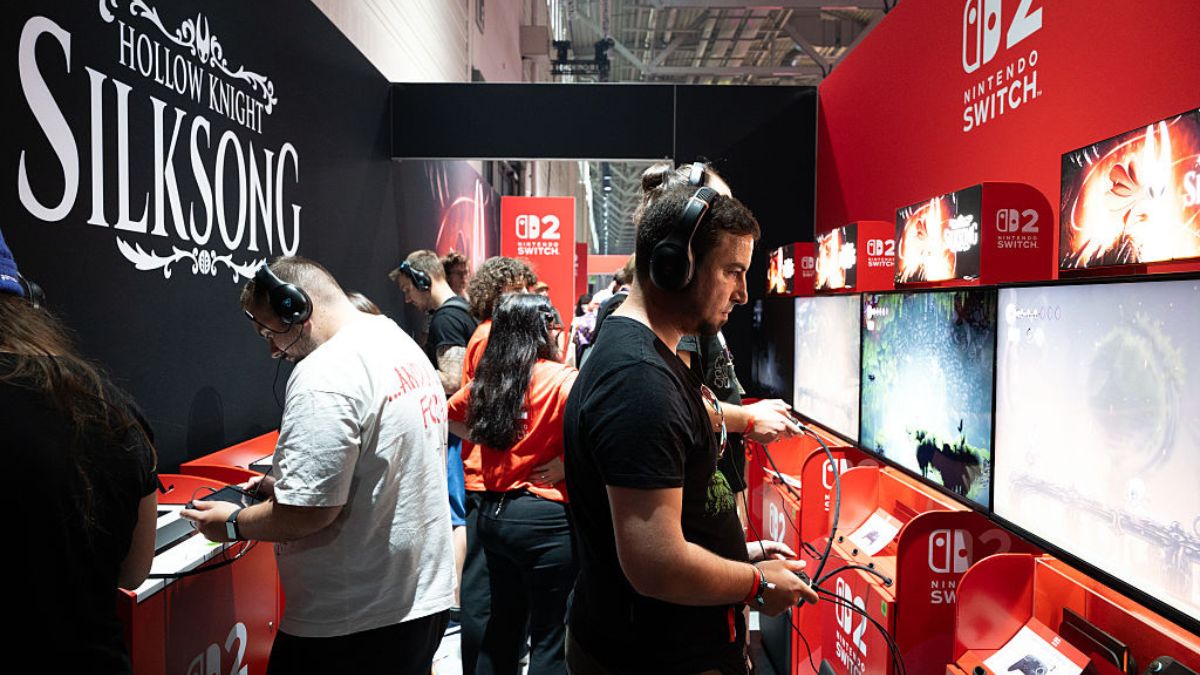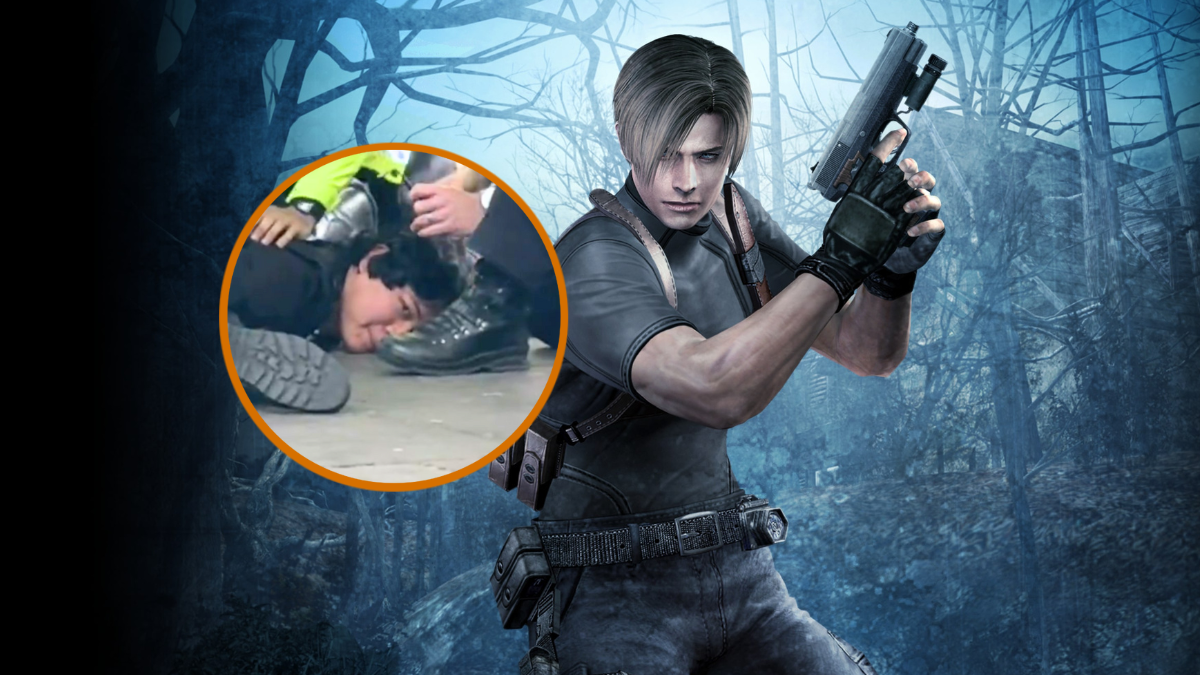
In-between bold kidnappings and their resulting rescue attempts, the colourful residents of the Mushroom Kingdom like to congregate for some motorized mayhem. The frenetic result is one of the most iconic series in video game history, which is a surprise considering that its roots are in spin-off territory. That insanely fast and action-packed series has made its way onto the Nintendo 3DS, with the release of Mario Kart 7. Acting as a mixture between a new experience and a greatest hits release, it’s sure to impress every gamer (or newcomer) willing to drive a virtual lap or twenty. Its included roads are fresh and open, without any disrupting potholes along the way.
Like its predecessors, Mario Kart 7 is devoid of a cohesive storyline. To find story elements, one has to read within the resolution lines. Even then, the pickings are slim. The incredibly popular series follows a regularly-occurring kart racing tournament which takes place in various locations found inside of the Nintendo universe. Every well-known character from the company’s roster takes part in the action, with some supporting faces added in for good measure. Regardless of their popular culture success, each one is there for the same reason: to have their name added to the eight different trophies that happen to be available for the taking. You heard that right – there are eight different cups to speed your way through.
The way that this game is set-up is ingenious. Two separate sets of four series races are available to be contested in digital space, with each one containing its own four-track contest. Points are given out based on each character’s position at the end of each race, accumulating until the end where a victor is chosen based on his or her overall tally. What is really great about this design, is the fact that each cup set has its own track types. On top, one will find a bunch of new courses which ooze creativity. On the other hand, the lower half is an old-school look at the series past, utilizing a mix of some of its best and most memorable courses. The included selection has been taken from every single franchise release since its debut on the Super Nintendo Entertainment System. Some highlights include fan favourites such as Rainbow Road (SNES), Kalimari Desert (N64), Mario Circuit 2 (SNES) and Bowser Castle 1 (GBA).
From the get-go, there’s one thing this series has been known for excelling at. That would be great track design – something which Mario Kart 7 delivers in spades. Even without its returning favourites, there would still be sixteen uniquely intricate roadways for gamers to drive, slide and hop through. They’re all quite good, with a solid mixture of elements, hazards and choices brought on by shortcuts offering different driving styles. The latter factor leads into the game’s best new features – its included air gliding and underwater driving sections. Those two individual changes make a huge difference in the grand scheme of things. They’re well-represented within the course selection menu, where many roadways offer different routes that cater to fans of each. Returning courses have also been given new underwater environments, along with glide-utilizing jumps.

Whereas previous entries showed magnificent jumps as being a slingshot from point A to point B, the new gliding mechanics turn that event into playable form. This time around, virtual kart racers aren’t forced to watch a predetermined animation of the aforementioned jump. Instead, a playable gliding mechanic is instigated, with one of a few different aerodynamic accessories shown. This means that players are now responsible for finding their way to the next platform (through a tiny pathway hole,) with a collision becoming a potential, slowing result. Generally speaking, this new element is predominantly used to give us the advantage over other competitors. Choice is presented, allowing for quick descent or a lengthy soar – each one having its advantages and disadvantages. Reading the situation to decide which one is best, will give you a helpful advantage over the ruthless pack.
While underwater, the karts adapt a boat-like propeller motor, which helps to push each character through the liquid depths. Fish, seaweed and clams add visual flair at the edges of the pathways down below, but the driving stays primarily the same. Differences are noticeable when the karts drop into the water, as gravity takes effect at that point, but that doesn’t factor in a lot on smooth paths. Although it doesn’t bring a major gameplay change with it, this addition does do a good job of adding extra visual flair and alternate route options to the experience. It’s also very neat to watch standard Mario Kart action unfold underwater. Thankfully, koopa shells don’t float.
Apart from those two aforementioned additions and their introduced changes, Mario Kart 7 doesn’t do much to reinvent the wheel. Then again, that certainly isn’t a bad thing considering the series’ penchant for incredibly polished content. Its racing is still infused with tons of speed, carnage and speed burst-inducing drifts. All of its content is accessible enough for newcomers to easily enjoy (albeit at the game’s inaugural/easy 50cc speed as opposed to its 150cc elite,) with lots of ways for returning fans to show off their skill. Winning becomes easier if you know each track like the back of your hand, as quality drifting can become a huge asset.
Weaponry still plays as large of a role in this entry as it ever has in the past. In fact, it’s even more prevalent now, with the addition of a few new types. Mario’s iconic fire flower allows for several individual flame balls to be shot at other drivers, stunning them with heat burns. Additionally, the super leaf has the ability to give any racer a tanooki tail, used for swiping at other close-by drivers. Though, the best of all of the new arsenal additions, would have to be the lucky 7 pick-up. It gives players seven individual items all at once. They circle the vehicle like shells do, with the ability to be used one at a time. Needless to say, it’s the one power-up that you’ll hope to get as much as possible. However, like usual, the items’ strength and frequencies are staggered, based on individual positioning.

Complementing the rather lengthy circuit championship mode are two returning secondary options: time trial mode and battle mode. The former doesn’t need much explanation, though the latter will – at least, for newcomers to the series. It pits eight combatants into one of six arenas (three of which are new,) in an attempt to earn the highest amount of points possible. Two variations have been placed upon this scenario, including a balloon-popping battle and a coin-collecting contest. The one with the most points at the end of each round wins, with customizable tournaments comprised of a few events each. Deviating from the norm, characters’ balloons regenerate when depleted, as knock-outs are eliminated from the proceedings. Leaderboard statistics tracking becomes the overall focus instead.
Thanks to the Nintendo Wi-Fi Channel, the Mario Kart series’ relatively new bread and butter mode returns. Robust, eight-player online multiplayer is available for those who’d like to attempt to become the online circuit champ. It’s joined by local multiplayer which can be played with 3DS-owning friends who live close to you. The close proximity option supports several players per match, which is a nice touch. Adding onto that content is the game’s ability to communicate with others’ 3DS systems via StreetPass. This new feature keeps track of lap times and ghost data from those you pass in the real world.
When it comes to first-party/internal Nintendo releases like this one, it’s expected that an incredible amount of polish will be present. That is exactly why the game’s incredibly rich presentation didn’t come as a surprise to me. Mario Kart 7 looks phenomenal and it runs just as well. The entire experience is vivid, with an extraordinarily varied colour palette that complements its incredibly extravagant, varied and detailed track designs. Not to mention the series’ beloved characters – many of whom must be unlocked through race completion. Vehicle customization parts are also able to be unlocked, although they become available based on the amount of coins you’ve collected.
The highly-touted device’s three-dimensional viewing capabilities are used well, in order to add depth to the game world. Its utilized camera angles employ the viewing depth well, providing some unique views. At times, the extra dimension isn’t as noticeable as it as during others, but it becomes a missed aspect when the slider is moved to the off position. The depth became most noticeable during gliding attempts, trophy screens, text overlay moments and time spent underwater. With each track becoming more hectic as the race wore on, the development team also dug into its bag of tricks, in order to add extra visual distractions such as oncoming fish. Additions like that helped to add to the experience and its visual capabilities.

Music has always been a huge part of the Italian plumber’s digital repertoire, and this release continues that trend. Many memorable tunes from past entries have found their way back into the fix. Most have never sounded better, thanks to the 3DS’ impressively powerful simulated surround sound speakers. Additional melodies were added in, and none of them feel out of place at all. Of course, the music is half of the audible content here, as vehicular, weapon-based and character-driven sound effects also factor in. They’re all very strong, although the characters’ individual celebrations can become a tad annoying after a while.
After giving this grey cartridge quite a bit of time out on the test track, it’s become an easy one to recommend. Mario Kart 7 doesn’t reinvent the proverbial wheel, but it does present incredibly addicting and extremely polished game play throughout several different modes. Not only does the game ship with a ton of new track-based content – it also acts as a greatest hits release for those who have grown up adoring the kart-racing series. In order to find individual things to complain about, one would essentially have to nitpick. Other than its lack of evolution, this is a phenomenal game. If you’re a 3DS owner, looking for something new to sink your gaming time into, then it’s certainly a highly-recommended purchase.
This review is based on a copy of the game that we received for review purposes.










Published: Nov 29, 2011 03:01 am